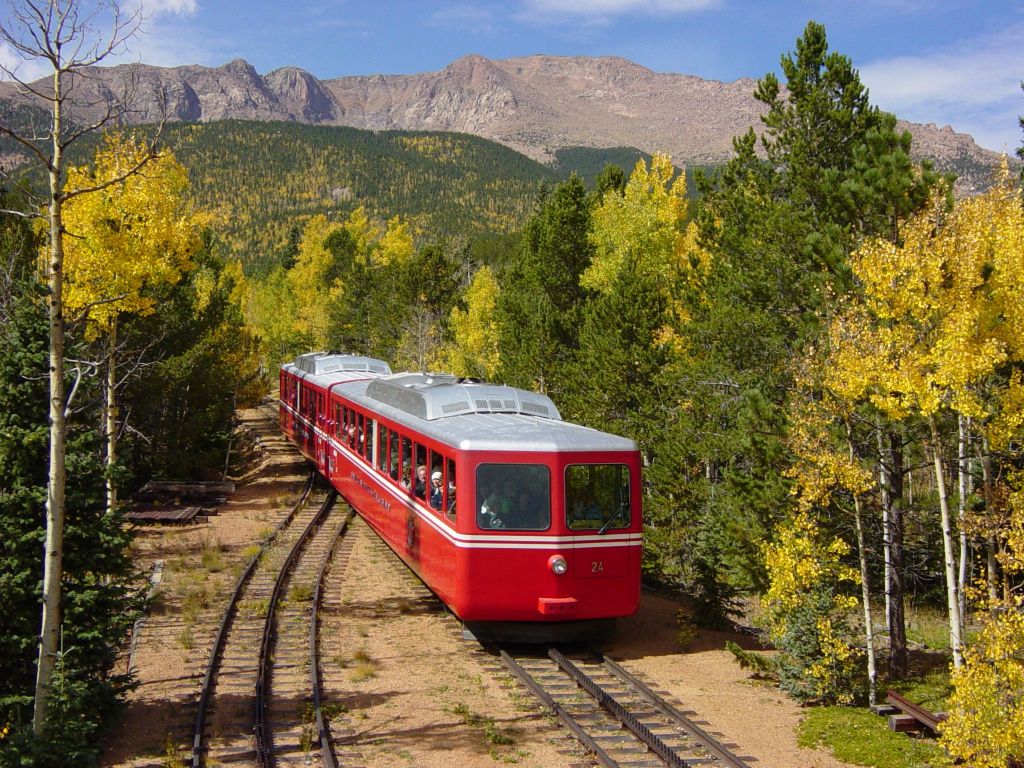A tax tiff between the City of Manitou Springs and the cog railway atop Pikes Peak has reached new heights, with the city now claiming it was tricked into giving the railway generous tax breaks and the railway claiming the city is trying to triple its tax rate as a punishment.
The Broadmoor Manitou and Pikes Peak Cog Railway, which is owned by the Anschutz Corp., dates to 1891 but its dispute with Manitou Springs has its origins in 2017, when the rail line closed for repairs and renovations. The city and railway negotiated a tax incentive deal then.
Their 50-year agreement required the railway to make payments in lieu of taxes while the railway was undergoing its $97 million renovation between 2018 and 2021. In exchange, the city would reimburse any annual amusement taxes paid by the railway above $500,000 between 2021 and 2070, saving the railway an estimated $8 million to $36 million over five decades.
“The city … was pressured and induced to enter into the tax incentive program agreement with MPPR under duress,” Manitou wrote in a Sept. 8 countersuit it filed against the railway, “and based upon threats by MPPR to cease operations if it did not receive a public subsidy.
“Throughout the negotiations, MPPR … represented that the cog railway would permanently close if the parties did not enter into the agreement,” the city says now. “MPPR did not intend to permanently close the cog railway if the parties did not enter into the agreement.”
Manitou Springs says it was also misled about ticket prices. Anschutz Corp. claimed that a ride up the mountain would cost about $30 but when the railway reopened, tickets were priced at $60 on average and have increased since. As a result, the city has had to reimburse far more in taxes than it expected to. It never would have made that deal if it knew, the city says.
The Manitou Springs City Council voted each year between 2021 and 2023 to send six-figure reimbursements to the railway. But late last year, it voted against sending a reimbursement of 2024 taxes. The city says that was its prerogative and not a breach of the tax break agreement.
The railway sees it differently. It sued the city in April and demanded a reimbursement of its 2024 taxes, then amended its lawsuit in August to make an additional accusation.
“The city’s stated desire to increase the excise tax is bad faith retaliation against the Manitou and Pikes Peak Railway for pursuing its claims against the city,” MPPR alleged.
The Manitou Springs City Council voted Aug. 19 to let voters decide this November whether to hike the city’s amusement tax rate from 5%, where it has stood since 1973, to 14%. The railway wrote Aug. 25 that 90% of excise tax revenue in Manitou comes from cog railway tickets and that a 14% rate “would make it the largest tax of its kind in the state of Colorado.”
Both the Manitou and Pikes Peak Railway and the City of Manitou Springs are asking an El Paso County jury to decide their dispute. A trial in the case has not been scheduled.
The railway’s lawyers are Jeffrey George and Steve Bruns with Hogan Lovells in Colorado Springs. The city’s lawyers are Patrick Wilson, Jeff Parker and Nathan Cash at Hoffmann, Parker, Wilson & Carberry in Denver. Parker is also the city attorney for Manitou Springs.
Read more from our partner, BusinessDen.



